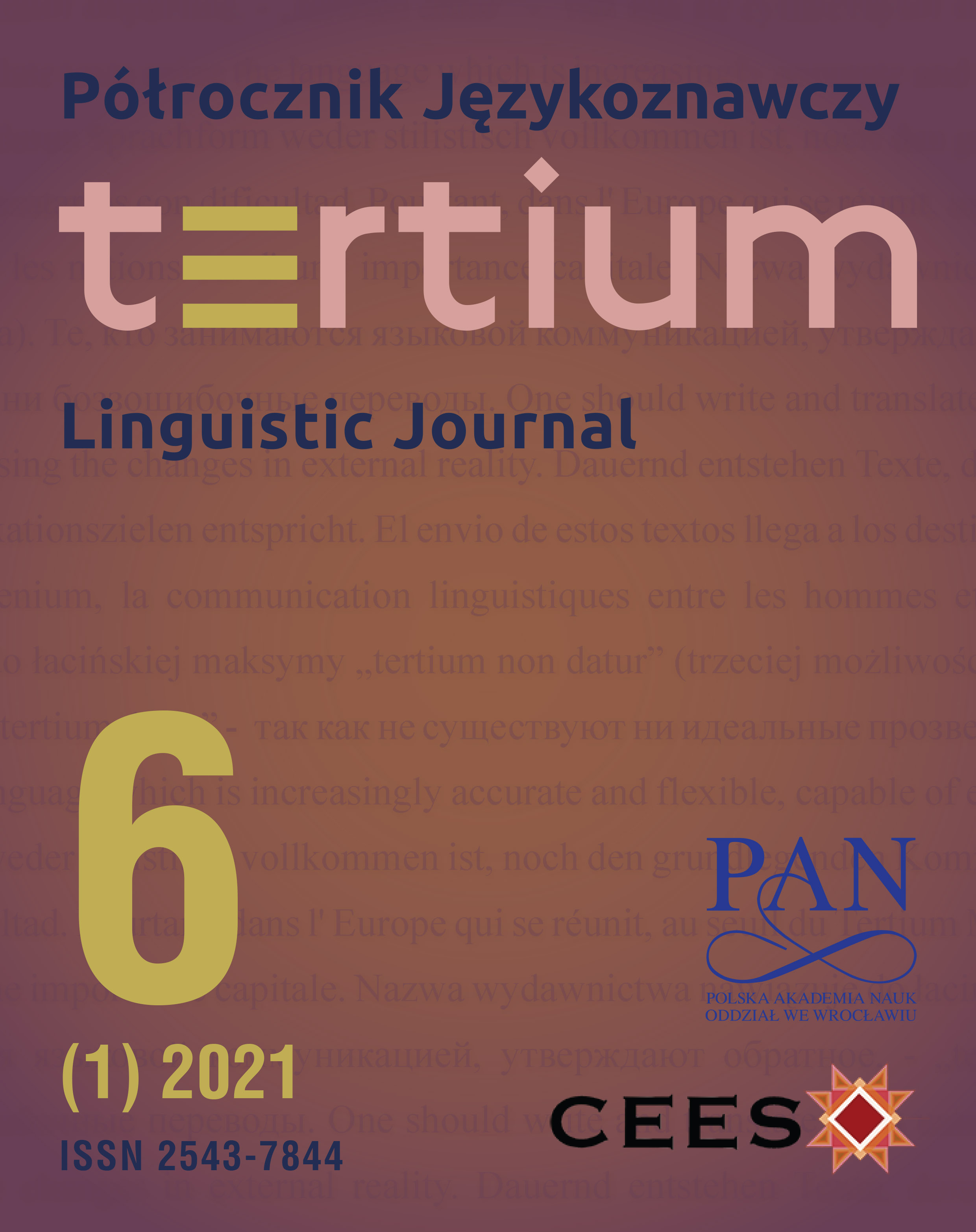Insults and Swear Words in the TinTin Comic:
Morpho-Pragmatic Contrastive Study
Insults and Swear Words in the TinTin Comic:
Morpho-Pragmatic Contrastive Study
Author(s): Maria AntoniouSubject(s): Anthropology, Social Sciences, Language and Literature Studies, Theoretical Linguistics, Applied Linguistics, Communication studies, Morphology, Syntax, Semantics, Pragmatics, Descriptive linguistics, Cultural Anthropology / Ethnology
Published by: Krakowskie Towarzystwo Popularyzowania Wiedzy o Komunikacji Językowej Tertium
Keywords: insults; swear words; pragmatics; morphology; linguistic politeness; cultural values; cross-cultural communication; Greek; French; English; discourse analysis;
Summary/Abstract: Most linguists consider insults and swear words as interjections carrying an expressivefunction through which the enunciator manifests his/her emotions (Guiraud 1975; Rouayrenc1998). Their function is, therefore, cathartic. The aim of the present study is to provide acontrastive study of insults and swear words. We investigate whether there are specificmorphological or syntactic structures pertaining to insult and swear words, and discuss thecross-cultural similarities and differences in the pragmatic use of this kind of language,focusing on the perspective of politeness. In order to do so, we analyse examples drawn fromHergé’s TinTin and their translation into Greek and English, since this comic is extremelyrich in insults and swear words due to the particularities of the genre of discourse andCaptain Haddock’s expressive character, giving rise to orality and hyperbole. The questionhere is whether the implicit pragmatic and cultural values are the same in all the texts ormaybe there are important differences, derived from the particularities of each of thelanguages of study, which can be traced. It emerged that Greek prefers joined compoundwords and that the chosen utterances reflect all the parameters influencing the original, bethey phonological, semantic, pragmatic or stylistic. In contrast, the English version seems tobe more distant on all levels of linguistic analysis. Accordingly, the (non)preservation of theparameters depends on the peculiarities of, respectively, the Greek, French and Englishlanguages, as well as on the collective images of the recipients. Our conclusions match theconclusions reached in previous research, proving Greek to be rather positive politenessoriented, as opposed to English (see also Romero 2000; Sifianou 2001).
Journal: Półrocznik Językoznawczy Tertium
- Issue Year: 6/2021
- Issue No: 1
- Page Range: 86-121
- Page Count: 36
- Language: English

